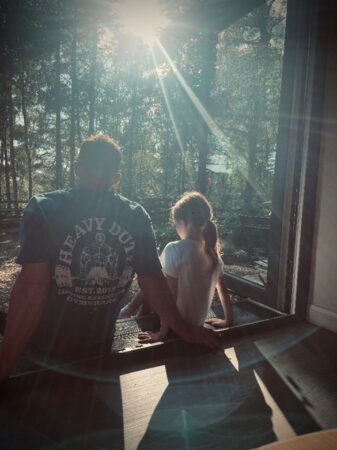Home News & Views Compassion: The sustainable way to success
Compassion: The sustainable way to success
By Sonia Denton-Smith, RBCS Project Manager and Facilitator
Our journeys to a place in life where we feel we have succeeded or identify ourselves as having been successful, aren’t always straightforward or without challenges. It made me think how do we make sure we are compassionate to ourselves and others along the way.
I wanted to reflect on the definition of compassion and what it means when we are trying to achieve our goals. Here is a definition of compassion from Dr Paul Gilbert, founder of The Compassionate Mind Foundation.
Compassion is “… a sensitivity to suffering in self and others with a commitment to try to alleviate and prevent it.”
To me, this definition of compassion shows that to be compassionate requires us to pay attention to and accept our own suffering (distress) and that of others, in order to be able to understand what is causing it, so we can then look for our solutions to alleviate and prevent it.
When we think about being successful in a career, there is often a narrative, something along the lines of; ‘to be successful you need to put your head down, work hard, grit and persevere through all the difficult times’. This narrative has stereotypically been associated with working in ‘corporate’ job roles but now healthcare is growing and seen as a profession (and less of a vocation), we often see this narrative play out as healthcare professionals are becoming increasingly driven and ambitious, working hard to pursue their professional goals and be deemed just as successful as professionals from the corporate world.
But are we losing our compassion along the way? How do we stop this narrative? How do we nurture our compassionate selves in a way that enhances our successes and achievements, contributing to changing the narrative and creating a new pathway for our healthcare professions?
Why is compassion important to success?
Take my partner, Darren. Darren works full time but also trains as a CrossFit athlete, where he often competes. To be a successful athlete, there is also this narrative of ‘put your head down, grit and preserve through the difficult times’. Whilst there are elements of truth in this; it takes hard work, determination and perseverance to show up and train everyday even when he is tired, or his body aches or has had a bad day, there is something more that is required; ‘compassion’ because there are also emotions that need to be considered. Darren’s drive to be a successful athlete doesn’t come from working hard, it’s his emotions that drive him to work hard, and what motivates him to get to the gym. Nurturing his emotions has now come to the forefront of his training plan. Throughout his athletic career Darren has been faced with burnout many times, because the narrative has always been ‘work harder’ ‘push through’.
So how does compassion play its part here?
Well, when looking at the sheer discipline it takes to become an athlete, from training to diet to sleep, it can be easy to miss the ‘joy’ in the process, and the ‘joy’ is fundamentally the ’why’. And losing sight of your ‘why’ is detrimental to your drive and most importantly your ‘success’. Being compassionate to yourself enables you to connect with your affiliative (soothing) emotional system, vital for giving us our feel-good hormones such as oxytocin and serotine (both important for feeling joy, love, passion and for resting, sleep and recovery).
 Interestingly, for Darren, compassion can play a significant part in his ability to be a successful athlete. Boosts of oxytocin enables him to experience joy, love and passion, and the release of serotonin enables him to relax and sleep and recover, giving him balance to be able push and drive towards his goals. Being compassionate to others, enables Darren to build relationships which means he gets the support he needs to achieve his goals whilst supporting others to reach theirs. This also reduces loneliness which, in the past, has contributed to that burn out. Training alongside others eliminates emotions of loneliness and builds social relationships making it easier to preserve through the difficult training sessions.
Interestingly, for Darren, compassion can play a significant part in his ability to be a successful athlete. Boosts of oxytocin enables him to experience joy, love and passion, and the release of serotonin enables him to relax and sleep and recover, giving him balance to be able push and drive towards his goals. Being compassionate to others, enables Darren to build relationships which means he gets the support he needs to achieve his goals whilst supporting others to reach theirs. This also reduces loneliness which, in the past, has contributed to that burn out. Training alongside others eliminates emotions of loneliness and builds social relationships making it easier to preserve through the difficult training sessions.
How does this transfer to healthcare professionals? Again from Paul Gilbert we have:
“Compassionate courage lies in the willingness to see into the nature and causes of suffering – in ourselves, others and the human condition.”
What I wanted to reflect on is that there are no short cuts to achieving your ‘success’, it takes hard work, determination and dedication but for it to be sustainable, it takes compassion. We need to be compassionate to ourselves, so we can enjoy the process, and embrace the good feelings we get from doing the job we love, and also for us to recognise that we focus on our time to relax, recover, reflect, recharge and reconnect.
 Like with Darren, we as healthcare professions need to have the courage to see that sometimes the work we do and the drive we have to succeed, can also send us in to overdrive. In chasing goals, we face uncertainty and uncertainty can drive fear and threat that we may not succeed, or we may fail, making us feel vulnerable. Compassionate courage is recognising these emotions and finding something that brings you comfort so when your day hasn’t gone very well, you can build yourself back up. Having something that makes you feel good, better or supported, can give you the confidence to keep going and keep trying.
Like with Darren, we as healthcare professions need to have the courage to see that sometimes the work we do and the drive we have to succeed, can also send us in to overdrive. In chasing goals, we face uncertainty and uncertainty can drive fear and threat that we may not succeed, or we may fail, making us feel vulnerable. Compassionate courage is recognising these emotions and finding something that brings you comfort so when your day hasn’t gone very well, you can build yourself back up. Having something that makes you feel good, better or supported, can give you the confidence to keep going and keep trying.
Just as an athlete needs a coach and a team or a community, so do we as healthcare professionals. Having compassion towards others is crucial to building meaningful connections and developing relationships with our colleagues, our team and community around us. This enables us to be more resilient as a community and helps push through those difficult times together reducing feelings of loneliness, being overwhelmed and anxiety.
Practising compassion to others and self can mean we are more likely to succeed, with less risk of burnout, so we can achieve our professional goals with the support of others, whilst experiencing the joy and passion that motivates us!
I hope that you can find your own way of nurturing your compassion for a sustainable journey to success!
Useful resources:
This is how being compassionate can make you more successful | World Economic Forum
Comments are closed.


